Brian Fargo - Von Wasteland zu Wasteland 2
Wie man Legenden mit Hilfe der Community aufrechterhalten kann.
It seemed quite clear to me that this was not going to be a one off situation that stopped once Double Fine funded. It was incredible to see Tim connect with his fans in such a meaninfgul way and I knew that others would move quickly to do the same or establish new relationships. Once you have momentum in the digital age things move very fast, so I was not surprised about the number of projets that blossomed. What has been a surprise is the how many of them have been succesfully financed and how excited people are about change.
Even though the big projects have not shipped yet there seems to be no slow in momemtum at all. I continue to see one game after another get financed with more great ones soon to come. There is an interesting phenomenon in that I have found myself funding games that I might not have bought otherwise. Seeing the passion of the teams has spurred me to invest in their dream and I don't think I am alone in this regard.
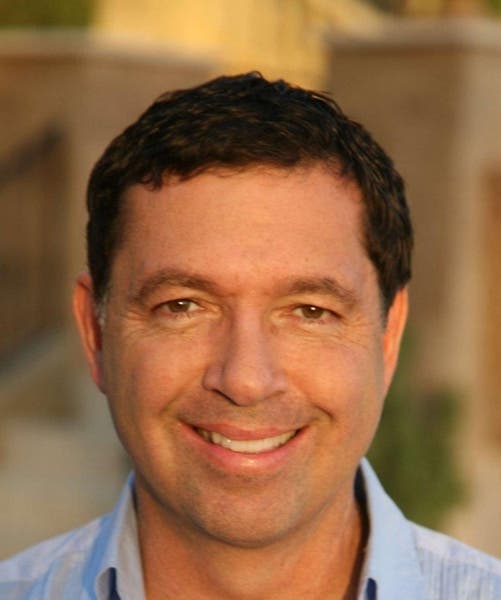
That is a really difficult question as it is hard for me to rate them and I don't want to take away from any one that I don't mention. I will say that the most money I have spent backing a project was OUYA. I did this because of what it represents and its potential ability to open up what is currently a closed system market. Yes, it has risks but it is a step in the right direction. My roots are from owning an Apple II and it was always fantastic to see what people do with an open system.
In the beginning I used to get asked if Kickstarter would only work for established IP and now the question seems to have inverted itself. There is much dialgoue in the publishing world about "product strategy" but for Kickstarter and indie games the only conversation is about gameplay. Games first ... business model second. Gamers will continue to buy if they like what they are hearing whether it is a new or old IP.
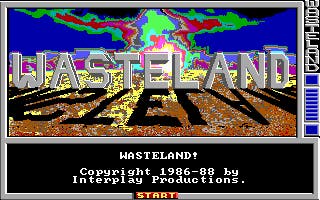
Managing expectations is always a risk in entertainment no matter how a game is funded. For us we are having a very transparent development process, so I would hope that would lower the risk for such a thing. We are vetting the overall philosphy of the game, the screenshots, camera angles, UI, music etc. AND we have a beta test period. If the great majority feel good about all those components, then there should be less a chance of disappointment. Despite the pressure to deliver here I feel more confident than in the past when we were flying on our instincts alone.
I have been pretty vocal in my goal of building a standalone company that produces RPG's again. I love every part of this process and I hope I am able to continue doing this for many years. Most every developer wants the creative and financial control of a company like Valve. However there will be times in which we may do business with a publisher but that is different than being financed and produced by a publisher. For example we may want to support XBOX someday in which case we have no choice but to use a publihser's distribution to gain access.
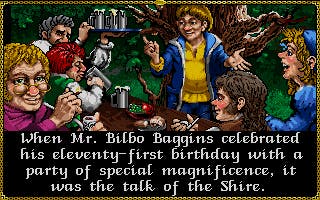
It's hard to know what might change their product strategies but their overheads are very big and require huge hits. A success for a smaller developer would often be considered a failure for a larger publisher. The real issue will be whether small dev teams with capabilites want to take their games to publishers over crowd funding sites like Kickstarter or Indiegogo.
Obviously the visuals have come a long way since the original and we had no music or real SFX so the world will be a lot more engaging than back in the day. We are able to create a mood that was not possible before. Also the scope and scale of the game is of another level. Gamers demand more density and we have a great deal more writing based on the amount of memory we have available, which wasn't technically possible before. We took the elements we liked about the first game like ranged combat, skills systems, world maps, gritty text and moral dilemmas and put a whole new shell on top. We focused on the elements that were fun and timeless.
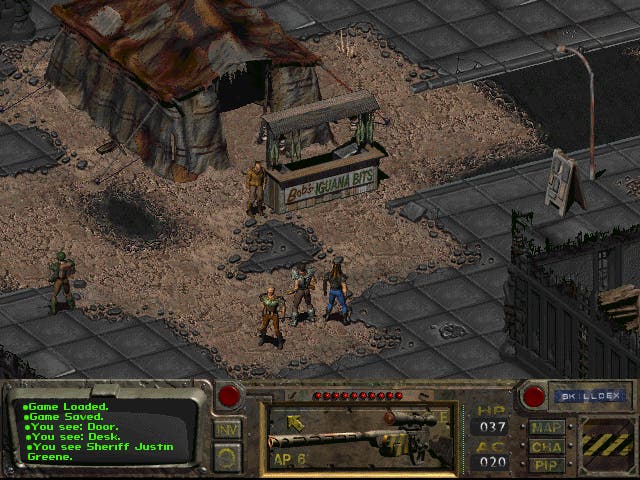
Combat is the biggest fundamental change from the first game. In the first game you controlled a party that was bundled together for the most part. The player could split the party up but they moved as a single unit for most of the game. Wasteland 2 is far more tactical in that they are always moving as indidivuals in the game maps (the world map is a different story). Combat is the thing you do the most so it better require thought and give you satisfying feedback. There was no cover, height advantages or formations to consider in Wasteland 1.
There are two very important aspects of the sequel and they are 1) make sure there is no knowledge required from the first game and 2) make sure the players that did play Wasteland 1 feel like they are going to back a nostalgic place. The story in Wasteland 2 starts just 15 years from the conclusion of the first game which means characters are still alive or remembered from years past. You will get to visit some familiar places and see what has happened through the years and you will be surprised that people may even remember some of the passwords from the first game. Some inside nods to the first game are fun for the old fans and are invisible to the new players.
It is always great to be working with old friends and I'm proud that I have managed to keep my good relationships over the many years. They are very passionate about making Wasteland 2 special and feel like they really want to prove how good it can be. And fortunately the tools and technology have come along so far since those old days that the designers have far more creative range than they did with the original. We must not forget we took TEXT offline in the paragraph book due to shortage of disk space. And writing was one othe strongest elements in the first game.
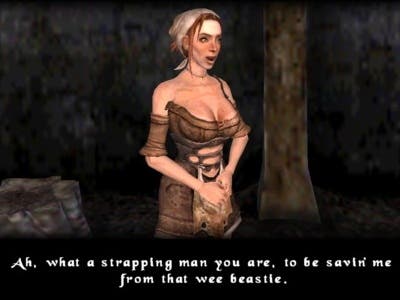
My focus of this game is on the vision for what I want it to be and qualities that I want it to have. Obviosuly all RPGs compete and Fallout sets the bar for tone and writing so I am cognizant of needing to improve upon what has been done before. I certainly think anyone who enjoyed the Fallout series will quite like what we are doing with Wasteland 2. We are really pushing the envelope of meaningful cause and effect and morality is never clear cut. There are so many choices that affect gameplay that it will be near impossible for two people to have the exact experience on a playthrough.
The backers have been critical in their comments and postings before we even went live with Kickstarter. We worked closely with them to make sure the tiers had value and fairnesss and clearly that was a success. We are always reading the forums to remind ourselves of what is important and we continue to run things by them. As we were raising money via Kickstarter we asked our backers what elements were important for us to prioritize. A great majority voted for us to not spend a lot of money on audio but rather wanted a larger and deeper game so that is exactly what we did.
I definitely don't want to stop making post apocalyptic RPGs, but I am hoping to have another project kicked off before Wasteland 2 is done. I would like some time to get comments from the players and give the writers the time they need before we started another one. It can be dangerous to a great franchise to start the next one too quickly.
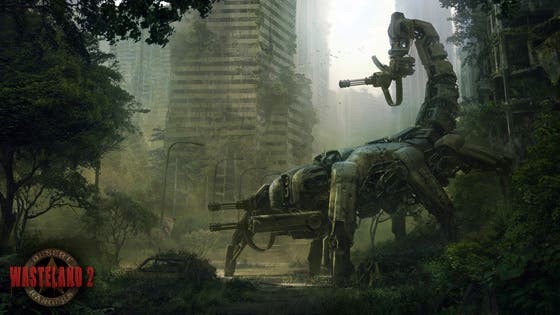
Oh I have a couple very specific franchises I am dying to do but I would not dare talk about them yet.
And I am always a fond of the classic top down medieval RPG games like Ultima or the little known Faery Tale adventure. There was always a great sense of exploration in those games and working to reveal was rewarding. There has been many a JRPG that covers this genre, but it is still a fun one to experiment with.
Like a lot of people I was perplexed as most of the people that defined Black Isle are gone and the rights for all those titles have been lost. Are they getting the band back together or getting the brand back together?



